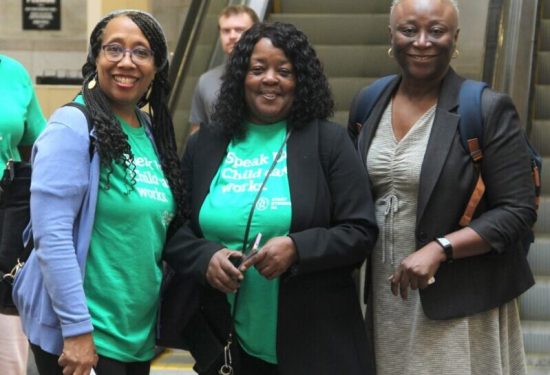The field of early care and education is experiencing a crisis; one characterized by programs closing, provider burnout and major disruptions to families as a result. We also often point to low provider and educator compensation as a key driver of this problem. Provider compensation is, of course, deeply connected to how we finance child care at the system level. Far too few public dollars flow into the child care systems. These policy decisions weigh heavily on home-based providers, both family child care (FCC) and family, friend, and neighbor (FFN) caregivers.
Home-based child care providers are experiencing significant material hardship. Our partners at the Stanford Center for Early Childhood have collected monthly survey data from home-based providers over several years now in their RAPID project. These data reveal that the home-based child care workforce is struggling to make ends meet. Among these data we see a picture of providers who struggle with basic needs: providers who go hungry at high rates (26% of FCC providers and 34% of FFN caregivers); who hold student loan debt; who struggle with housing costs (26% of FCC providers and 37% of FFN caregivers report housing hardship); and who worry about eviction (28% of FCC providers and 38% of FFN caregivers). Last month, we shared insight from provider interviews that reveal their challenges in accessing, sustaining and using health insurance.
Home Grown believes that there is an opportunity to reform our child care system starting with improving compensation to caregivers and providers. We embrace the Brookings Institution term of “compensation first” as a way to proceed to ensure we recognize, value and invest in the role of child care providers and caregivers as our first step. Home Grown invests in provider compensation strategies; the Thriving Providers Project seeks to support home-based child care providers with ongoing, predictable cash payments to stabilize their economic well-being and support caregivers’ wealth building.
Along with compensation and fair wages, we recognize that home-based child care providers also need access to comprehensive benefits including health care, retirement, nutrition assistance, housing support, paid leave, loan forgiveness and others. This month we share a new resource that offers state leaders and facilitators of home-based child care networks opportunities to connect home-based child care providers to various benefits. Benefits are a key aspect of compensation and we should embrace cross-sector opportunities to ensure that the home-based child care workforce can access the benefits they need and deserve.




